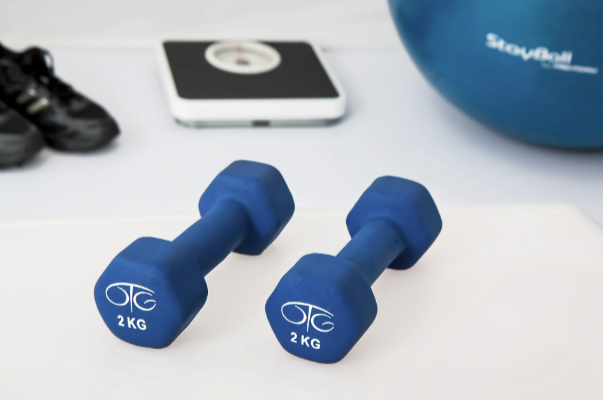How to Increase Energy and Boost Your Stamina

Overview
Stamina is defined as the ability to perform a certain physical or mental task without quickly getting exhausted.
Our new lifestyle requires a lot of stamina to keep up with the increasing physical and mental demands of the workplace and society.
In this article, we will cover 4 practical tips that increase your stamina, as well as the scientific research that supports our claims.
Therefore, it is crucial to learn some tips that can reduce your tiredness and improve energy levels.
Tips to increase your stamina
1 – Physical activity
While this might seem counterintuitive at first, regular exercise is an excellent energy-booster and can significantly increase your stamina.
In a 2017 study, researchers found that participants, who exercised for 6 weeks, experienced less work-related fatigue, sleep disturbances, and cognitive abnormalities.
This is attributed to the ability of exercise to stimulate hormonal secretions and musculoskeletal enhancement.
Overall, regular exercise is the most important tip to maintain your energy.
2 – Relaxation techniques
Chronic stress is extremely damaging to our organism.
When you are constantly under psychological pressure, your brain stimulates the adrenal glands to secrete cortisol, which is the primary stress hormone in the body.
Cortisol affects every cell of the body and can lead to drastic metabolic and biochemical changes that lead to chronic feelings of fatigue and restlessness.
Fortunately, there are several relaxation techniques that you can perform to reduce the secretion of cortisol; these include meditation, yoga, and any other activity that you find relaxing.
In one study, scientists found that medical students who practiced yoga and meditation for 6 weeks reported lower levels of stress, fatigue, and improved feelings of well-being.
3 – Music
Listening to music is a powerful stimulator of your central and peripheral nervous systems.
You may have noticed that your endurance is much higher at the gym when you’re listening to music. This phenomenon is not an anecdote! Many scientific papers have demonstrated the fascinating effects of music on the brain and energy.
4 – Caffeine
Just like other stimulants, caffeine can activate certain neurological circuits that give you a boost in energy.
Moreover, caffeine usually will not alter your heart rate, which is super important when you are trying to increase your stamina but don’t want to modify physiological functions.
This effect was shown in a 2017 study, where swimmers consumed caffeine before training and noticed a significant improvement in performance without an abnormal increase in their heart rates.
Conclusion
Boosting stamina is becoming more important every day, especially with the constant increase in standards of performance in the professional and fitness fields.
Hopefully, you have a better idea about the things you can do to decrease your fatigue and feel energized again.
If you still have questions, however, feel free to ask in the comment section below.
Top Foods That Can Help You Lose Fat

Introduction
Obesity has become a global health issue with severe mortality and morbidity.
According to the world health organization, obesity-related deaths exceed the number of people who die from famine!
Many people associate obesity with the number that the scale shows. However, this is not the full story. What’s causing all the diseases and complications is the high body fat deposition, especially around the abdomen and internal organs (called visceral fat).
In this article, we will cover some foods that may help you burn fat faster and improve your overall health and shape.
Foods to eat for fat loss
Fish oil
Fish oil that’s found in fatty fish is extremely healthy for the body. It can reduce inflammation, oxidative stress, and other harmful cellular processes.
Omega-3 oils have also been demonstrated to increase weight loss.
In a 2010 study, researchers supplemented 46 participants with daily fish oil for 6 weeks. At the end of the study, they noted that participants lost an average of 0.5 kilograms.
Moreover, cortisol levels dropped, which is normally responsible for activating fat-storage metabolic pathways.
Coffee
Coffee is loaded with caffeine, which is a central nervous stimulator that increases alertness and vigilance.
Coffee was also shown to help people lose more weight during exercise.
In one study, individuals who consumed coffee one hour before exercising burned twice the amount of fat compared to those who didn’t.
Just be cautious not to overconsume caffeine (especially later in the day) as it can interfere with sleep.
Apple cider vinegar
Apple cider vinegar is an ancient remedy that may provide several health benefits, including reduced inflammation, better glycemic control, and appetite suppression.
The active ingredient –acetic acid– is also implicated in weight loss.
In a 2009 study, 144 overweight participants added two tablespoons of apple cider vinegar to their usual diet for 12 weeks.
By the end of the study, researchers reported that participants lost an average of 1.7 kilograms of fat.
Conclusion
Losing that extra fat is a long and exhausting journey, especially if you’re new to the fields of nutrition and fitness.
However, you should not give up, as it’s the only path to reach your fitness goals and stay healthy.
If you are facing any issues in the fitness or nutrition fields, feel free to ask questions in the comment section below.
Three Weight Loss Mistakes You May Be Making

Introduction
The fields of fitness and nutrition are extremely complex and full of misinformation/false claims.
Sadly, many people make mistakes during their weight loss journey, especially in the beginning.
In this article, we will discuss some common weight loss mistakes that you should avoid.
3 common weight loss mistakes
Focusing too much on scale weight
This is a pitfall that most people fall in!
When you first start a new diet and exercise program, you get all excited about the weight you’ll lose in a few weeks.
As a result, you might start to hop on the scale too often.
Unfortunately, this could be quite misleading. You see, at the beginning of a new diet, most people lose significant “scale weight”, which is primarily due to water loss.
Conversely, if you are doing strength training, you may notice that your weight is not changing even though you started dieting. This is attributed to muscle gain.
Focusing too much on cardiovascular training
While cardiovascular training is super important for the body, strength training is equally essential.
Aside from the energy consumption during a workout session, strength training will improve your shape, increase lean muscle mass, and burn fat as you sleep.
Overcompensating yourself
After a long and tiresome exercise session, you may feel the temptation to compensate yourself with food.
For instance, your favorite chocolate bar or that delicious Mac and Cheese you’ve been thinking about.
However, this could be a big mistake!
In a 2010 study, researchers asked participants about the number of calories they think are being burnt during their exercise.
Most participants answered between 600 to 800 calories, while in reality, they were burning 200 to 300 calories.
Conclusion
Weight loss is an overwhelming topic for many beginners.
There is much misleading and conflicting information out there. You may read an article that advises you to eat a type of food, only to stumble upon another article that tells you to avoid it.
So, if you have any questions or recommendations, feel free to ask in the comment section below.
